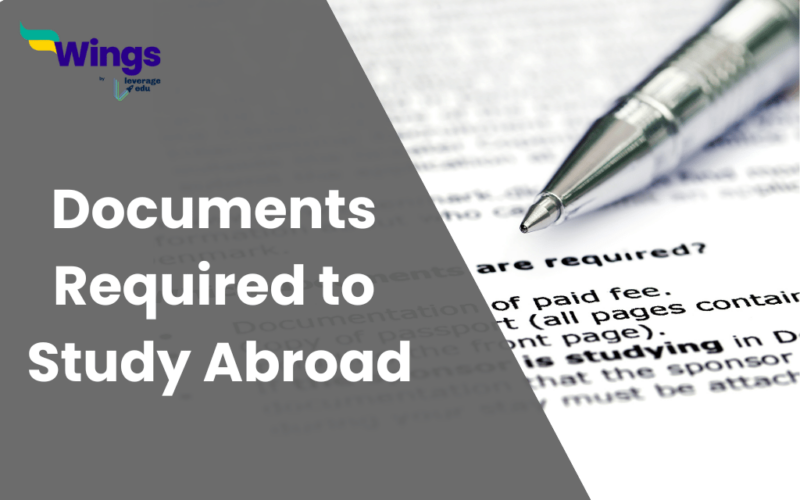Applying to a university abroad is a hassle in and of itself, from deciding on the right course and university to arranging for housing, visas, and other necessities. There are several documents required to study abroad, and you will need them at different phases of the process. Here is your go-to guide for the documents needed to study abroad.
Essential Documents for Studying Abroad
Having the right documents to study abroad is vital for a smooth and successful international academic experience. These documents, including passports, visas, academic transcripts, and language proficiency certificates, enable legal entry into the host country, facilitate university enrolment, and ensure eligibility for scholarships or financial aid. Failure to organise these documents correctly and well in advance may lead to visa rejections, enrolment difficulties, or missed opportunities. Proper document preparation also allows students to plan and budget effectively, minimising last-minute complications and disruptions to their studies. Essentially, thorough document verification is a key step in ensuring a stress-free and successful study abroad experience.Key Documents Needed for Studying Abroad
The documents required to study abroad can vary depending on the country and university chosen. However, several essential documents are commonly required by most institutions:Official Academic Transcripts
An academic transcript is issued by your current or previous academic institution(s) and verifies the courses you have completed. Ensure that these documents are stamped and certified by the issuing authority, as some institutions charge for providing academic transcripts. You can expect to receive your transcripts within 7–14 business days. Your transcripts will typically include:- Accreditation of the institution
- Student’s name and ID/roll number
- Degree obtained
- Courses undertaken and marks/grades achieved
- Total aggregate marks/grades
1 Application Form
The application form is a crucial document containing all your personal and professional details. Complete the form carefully, ensuring all information is accurate, and double-check before submitting it.2. Curriculum Vitae (CV)
Your CV should highlight both professional and academic achievements. Originating from the Latin phrase meaning “course of life,” a CV is often required by universities and recruiters abroad. It should include:- Contact information
- Academic history
- Professional experience
- Skills, qualifications, and awards
- Publications, associations, and certifications
- Volunteer experience and optional personal information
Related Posts
3. Resume
Students frequently confuse a CV with a resume. A resume is a concise document showcasing professional and academic qualifications and is tailored to your skills and accomplishments. It should include:- Name and contact details
- Objective and summary of qualifications
- Skills and work experience
- Educational background
- Language proficiency and achievements
4. Letter of Recommendation (LOR)
Most universities abroad require letters of recommendation (LORs), generally two: one academic and one professional. An academic LOR is typically written by a teacher or principal, while a professional LOR comes from a past employer. Sample LOR Format:To Whom It May Concern My name is [Recommender Name], and I am pleased to recommend [Student’s Full Name], whom I have known for [Duration]. During my relationship with [Student’s Name], I observed their punctuality, teamwork, and respectful approach to their work. Without reservation, I recommend [Student’s Full Name] for this programme at [University Name]. Best, [Signature] [Date] [Mobile Number] [Email Address]


